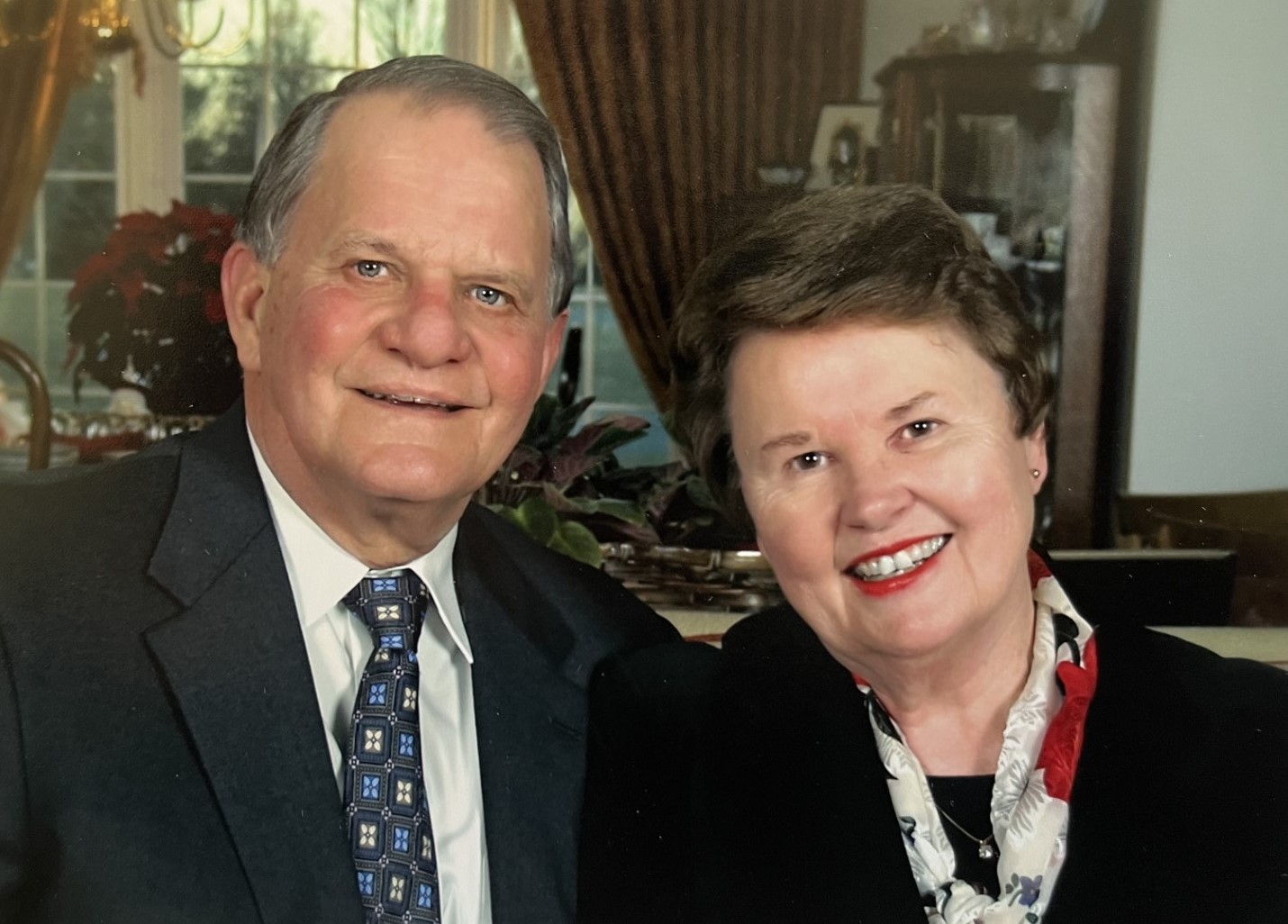
Max Larsen discovered early in his career that connecting people to resources was his strength.
Earning his Ph.D. only nine years prior, Larsen was selected as the interim dean of the College of Arts and Sciences at the University of Nebraska–Lincoln in 1975.
“I loved being dean because there was a lot of freedom to do things that I thought needed to be done,” Larsen said. “I could find resources for faculty for research and teaching. I observed that there were excellent faculty with brilliant ideas with the support of their department, but no resources to try to implement their ideas.”
After graduating from the University of Kansas in 1966 with his Ph.D. in commutative algebra, Larsen saw an opportunity in Nebraska. As a graduate student, Larsen had worked actively in teaching and conducting research. At the time, he was writing a book, and he found that UNL was an excellent place to work, teach, and continue his research. He joined the faculty in the Department of Mathematics as an assistant professor.
Larsen took every opportunity he felt fit him while at UNL. He was promoted to full professor in 1973. He was elected to the college executive committee, and then as interim dean. He also was on the committee that hired Jim Lewis on the mathematics faculty in 1971.
His most notable memory of the university was when Irving Kaplansky congratulated him, Lewis, and Tom Shores on answering Kaplansky’s problem that had gone unsolved for 19 years.
“We solved it and published it in the Transactions of the American Mathematical Society. It’s clearly the best mathematics I ever did,” Larsen said. “To be able to call Irving and tell him we solved it, and then him telling us congratulations, was a big moment.”
In 1981, Larsen left the university to pursue an opportunity to serve as the executive vice president at Gallup, where he worked in their survey division on their infrastructure and computer business and data management. He then started and grew Gallup’s business with the government. Larsen was managing partner for the government and education office in Washington, D.C., where he developed that side of the company for the next 15 years.
Larsen enjoyed this aspect of his work because it allowed him to be creative about how he could do research to help clients use the research to make decisions.
“I was effective at getting clients because I could talk to the leaders in government. If you had this data, you could make these decisions, and you could do a better job,” Larsen said. “I was effective at talking them into making decisions and doing something better even though they were risk averse.”
While working in D.C., Larsen’s wife, Lillie, and family were in Lincoln. He commuted weekly back and forth. In 2006, Larsen retired from Gallup. When he left Gallup, he didn’t want to give up helping government agencies, so he spent the next 15 years doing independent consulting work. He helped federal agencies set up valid data collection systems with the states they were supervising and to make data available to manage.
“That was a big success and a big passion of mine. I did that in several federal agencies using strategic planning to help them understand why they needed data and what kind of decisions they could make and then putting the system in place,” Larsen said.
Once the COVID-19 pandemic hit, Larsen’s work commute between Lincoln and D.C. was put on pause. He decided to close this part of his business and sold the home on Capitol Hill to return to Lincoln.
Now when Larsen isn’t busy finding ways for others to discover opportunities to succeed, he enjoys vegetable gardening, working in his yard and spending time with his family and three sons. He and Lillie just recently celebrated their 60th wedding anniversary.
Larsen still consults with nonprofits in Lincoln because he enjoys helping people find their own strengths.
“My advice is to follow your dream, and give it all that you have. Examine partnerships that will help you be successful,” Larsen said. “Each of you has natural ways of thinking and acting, often referred to as ‘strengths.’ Think about your personal strengths and explore how you can use them in alternative career paths, if necessary. I left academia and found satisfaction and fulfillment because I found work that let me use my strengths.”
To discuss how to leverage your strengths, Larsen welcomes emails at max@maxdlarsen.com.
– Michaela Farley | Mathematics